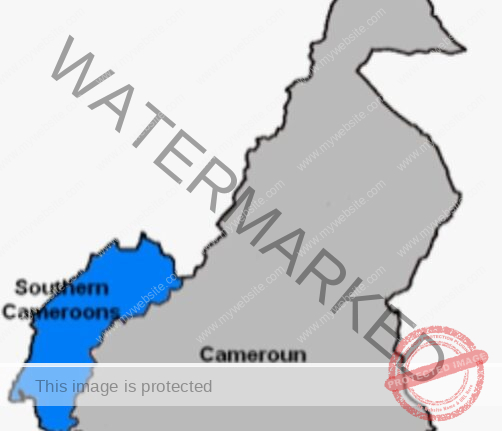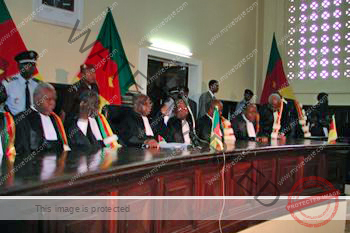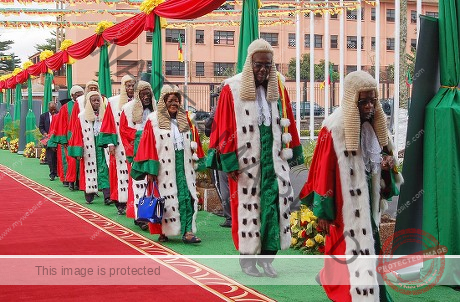Dr. Louis Mbua secretary of state for natural resources, Government of the Federal Republic of Ambazonia
Dr. Louis Mbua shares his opinion on;
Subject: Britain’s “Abandonment” of Southern Cameroons—
Sir/Madam,
Dr Louis Mbua’s recent Facebook commentary on why the United Kingdom denied Southern Cameroons the third option of full independence deserves careful attention. For clarity, I restate his position exactly as presented:
Dr Mbua’s Three-Point Explanation.
“Economic unviability.” A Colonial Office enquiry concluded that an independent Southern Cameroons could not sustain itself. Mbua notes that the territory actually remitted roughly £1 million to Her Majesty’s Treasury by 1955-58, financed Northern Cameroons almost single-handedly, and boasted high literacy and strong academic performance (e.g., Sasse College’s West-African ranking).
“A self-fulfilled prophecy favouring Nigeria.” Whitehall expected the 1961 plebiscite to deliver union with Nigeria and shielded its commercial stake in the Cameroon Development Corporation (CDC), therefore resisting any diplomatic path that would let Southern Cameroons “walk away” easily.
“Cold-War security fears.” Foncha’s tactical alliance with the Union des Populations du Cameroun (UPC) through the KNDP allegedly alarmed London: the UPC was (a) foreign, (b) labelled a Soviet-financed communist movement, and (c) already banned (1957). The Colonial Office feared the UPC would overwhelm a tiny new state. Sir Andrew Cohen, Mbua adds, thus breached the Trusteeship Agreement by refusing the independence option, while the UN Administrator prioritised “regional security” over charter obligations.
Dr Mbua concludes that Southern Cameroonians should remain wary of the allies they court today, because “law alone is not enough.”

A Rebuttal
1. Economic “unviability” was a political construct, not an empirical finding.
Recent archival work shows that the 1950s “viability study” relied on deliberately conservative assumptions and ignored the territory’s export-driven plantation economy. Scholars using National Archives data and CDC balance sheets now demonstrate that the colony’s per-capita revenue out-paced many West-African peers the British judged ready for independence. Dr Elvis Nkome Ngome’s 2025 review dismantles the Colonial Office’s methodology and labels the unviability verdict “a strategic red card” to independence advocates.
Moreover, London itself channelled substantial Commonwealth loans into the CDC—£3 million in 1959 alone—precisely because the enterprise was profitable.
It is implausible that investors would pour capital into an economy deemed terminally weak.
2. Whitehall’s real priority was not Nigeria but orderly disengagement.
True, many British officials preferred the Nigerian option, yet the record shows the overriding aim was to exit without jeopardising strategic plantations or creating a security vacuum. Once Southern Cameroonians voted against Nigeria in February 1961, Britain still refused to delay independence to negotiate a treaty of union that met UN Resolution 1608 (XV). The haste—rather than any affection for Nigeria—left Southern Cameroons in constitutional limbo that persists today.
The CDC argument cuts both ways: Britain’s investments meant the corporation could have underpinned a viable micro-state (as East African Tea or Kenya’s coffee sector later did), not that independence was impossible.
3. The UPC “red scare” was exaggerated and largely resolved by 1957.
British files confirm the UPC had been outlawed in Southern Cameroons on 30 May 1957 amid fears of cross-border violence.
By the time of the 1961 vote, UPC fighters were either underground in French-Cameroon Maquis or scattered refugees monitored by joint Nigerian-British patrols. London’s own intelligence reports in late 1960 rated the internal threat “manageable.” Invoking the UPC to deny an independence option therefore looks less like security prudence and more like Cold-War window-dressing.
4. Sir Cohen and the UN breached the spirit—if not the letter—of trust-territory law.
Article 76 b of the UN Charter mandated “progressive development toward self-government or independence.” By offering only two externally dependent plebiscite questions, both Britain and the UN Secretariat truncated the full range of self-determination. The legal deficiency is precisely what modern jurists cite when arguing that Southern Cameroonians remain a people without a completed act of decolonisation.
Conclusion
Dr Mbua is right to warn that alliances matter; realism must temper idealism. Yet the archival trail shows that Britain’s primary motivations were administrative convenience and asset protection, not an objective assessment of Southern Cameroons’ readiness or an overriding fear of communism. The territory was not a basket case; the CDC was not a liability; and the UPC threat, while real, was shrinking. In short, the third option died not because it was impossible, but because it was inconvenient.
As Britain today reflects on its historical obligations—from the Spitfire funded by Southern Cameroonian pennies to the unfinished business of trusteeship—it should re-engage the question of remedial responsibility, rather than rest on Cold-War justifications that have long since expired.
Yours faithfully,
Editorial desk -The Independentist





















Leave feedback about this